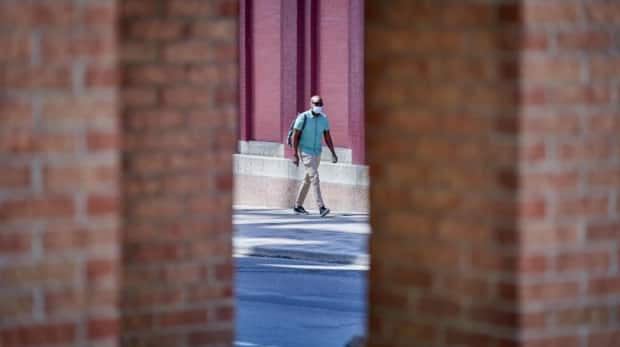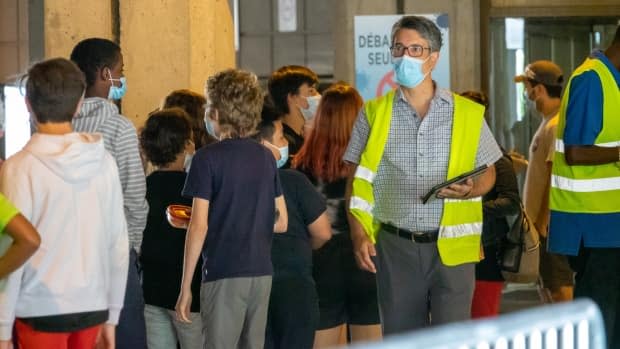What you need to know about COVID-19 in Ottawa on Saturday, June 19

Recent developments:
Western Quebec has temporarily paused new online vaccine appointment bookings.
Ottawa reported 18 more cases of COVID-19 and one death Saturday.
What's the latest?
Public Services and Procurement Minister Anita Anand has announced that Canada will have enough product on hand by the end of July to fully vaccinate every person eligible for a shot.
The health authority in western Quebec has temporarily paused new online vaccine appointment bookings due to a shortage of Pfizer doses. Existing appointments won't be affected.
Ottawa Public Health (OPH) confirmed another 18 cases of COVID-19 and one death Saturday.
How many cases are there?
As of Saturday, 27,544 Ottawa residents had tested positive for COVID-19. There are 217 known active cases, 26,739 cases considered resolved and 588 cases where people have died.
Ottawa-Gatineau area confirmed COVID-19 cases
Public health officials have reported more than 49,800 COVID-19 cases across eastern Ontario and western Quebec, including more than 48,400 resolved cases.
Elsewhere in eastern Ontario, 190 people have died. In western Quebec, the death toll is 214.
Akwesasne has had about 700 residents test positive and 10 deaths between its northern and southern sections.
Kitigan Zibi has had 34 cases and one death. Tyendinaga Mohawk Territory has had 11, with one death. Pikwakanagan hasn't had any.
CBC Ottawa is profiling those who've died of COVID-19. If you'd like to share your loved one's story, please get in touch.
What can I do?
Eastern Ontario:
Ontario is in Step 1 of its reopening plan, allowing outdoor dining and indoor shopping for non-essential items.
Up to 10 people can gather outside, including people from different households. Indoor gatherings between households are generally not allowed.
Step 1 brought back outdoor fitness, pools and non-contact sport practices under the gathering limit.
Gyms and personal care services are closed. Ontario has moved to online learning for the rest of this school year.
The province's reopening plan leans on rates of spread, hospitalization and vaccination. The next step would come in early July at the earliest, allowing small indoor gatherings, outdoor sports and personal care services.
Western Quebec
Western Quebec is under yellow zone rules. This brings back some masked indoor gatherings for people who don't live together.
People can eat both indoors and outdoors at restaurants and bars; a maximum of two people from different addresses can sit together.
Gyms can reopen and masks are mandatory inside.
Outdoor gatherings of up to eight people are allowed, or 25 if playing contact-free sports. As many as 2,500 people can gather in a large theatre or arena and there is no longer a curfew.
Travel throughout the province is allowed but not recommended. The Quebec-Ontario border is fully open.
The next step in Quebec's reopening plan should start June 25, bringing back festivals and allowing people with two vaccine doses to do more.
Distancing and isolating
The novel coronavirus primarily spreads through droplets that can hang in the air.
People can be contagious without symptoms, even after getting a vaccine. Coronavirus variants of concern are more contagious and are established.
This means it is important to take precautions now and in the future like staying home while sick — and getting help with costs if needed — keeping hands and surfaces clean and maintaining distance from anyone you don't live with, even with a mask on.

Masks, preferably ones that fit snugly and have three layers, are mandatory in indoor public settings in Ontario and Quebec and recommended in crowded outdoor areas.
People have to show proof of a recent negative COVID-19 test to enter Canada by land without a fine and have to pay for their stay in a quarantine hotel if entering by air. These rules should change soon and an update is expected on Monday.
Health Canada recommends older adults and people with underlying medical conditions get help with errands.
Anyone with COVID-19 symptoms should self-isolate, as should those who've been ordered to do so by their public health unit. The length varies in Quebec and Ontario.
Vaccines
Four COVID-19 vaccines have been deemed safe and approved in Canada. Three are in use.
Canada's task force said first doses offer such strong protection that people can wait up to four months to get a second. Supply and the more infectious delta variant are some of the factors pushing provinces to speed that up.
That same task force says it's safe and effective to mix first and second doses under certain conditions. Quebec and Ontario are both doing this.
More than 1,800,000 doses have been given out in the Ottawa-Gatineau region since mid-December, including more than 800,000 in Ottawa and more than 300,000 in western Quebec.
Eastern Ontario
Ontario is vaccinating anyone age 12 or older. People can look for provincial appointments opening up online or over the phone at 1-833-943-3900.
Pharmacies continue to offer vaccines through their own booking systems, as do some family doctors.
The next second dose change locally is Monday at 8 a.m. for people who got a first Pfizer-BioNTech or Moderna dose on or before May 9. All adults will be eligible to try to rebook as of June 28.
Ontario will allow second AstraZeneca doses for people who got a first AstraZeneca dose.
All of these bookings depend on the supply being sent to health units.
Health officials continue to tell people who got a first dose before a second dose was automatically booked they won't be forgotten. They say most people that want a second dose can get one by autumn.
Local health units have flexibility in the larger framework, including around booking, so check their websites for details. Some offer standby lists for doses on short notice.
Western Quebec
Quebec is giving a first dose to anyone 12 and older.
Its goal is second doses eight weeks after the first, allowing people to rebook by age. That has now expanded to people age 35 and over, moving to 30 and over on Monday.
The local health authority is not offering walk-in AstraZeneca shots for the time being because of supply.
People who qualify can make an appointment online or over the phone or visit one of its permanent and mobile walk-in clinics.
The province is looking at 75 per cent of people age 12 and up getting their second dose by the end of August.
Symptoms and testing
COVID-19 can range from a cold-like illness to a severe lung infection, with common symptoms including fever, a cough, vomiting and loss of taste or smell. Children tend to have an upset stomach and/or a rash.
If you have severe symptoms, call 911.
Mental health can also be affected by the pandemic, and resources are available to help.
In eastern Ontario:
Anyone seeking a test should make an appointment. Check with your health unit for clinic locations and hours.
Ontario recommends only getting tested if you fit certain criteria, such as having symptoms, exposure or a certain job.
People without symptoms but who are part of the province's targeted testing strategy can make an appointment at select pharmacies. Shoppers Drug Mart stores can now offer rapid tests.
Travellers who need a test have very few local options to pay for one.
In western Quebec:
Tests are strongly recommended for people with symptoms and their contacts.
People can make an appointment and check wait times online.
Call 1-877-644-4545 with questions, including if walk-in testing is available nearby.
First Nations, Inuit and Métis:
First Nations, Inuit and Métis people, or someone travelling to work in a remote Indigenous community, are eligible for a test in Ontario.
Akwesasne has a COVID-19 test site by appointment only. Anyone in Tyendinaga who's interested in a test can call 613-967-3603
People in Pikwakanagan can book a COVID-19 test by calling 613-625-1175 and in Kitigan Zibi, 819-449-5593.
Inuit in Ottawa can call the Akausivik Inuit Family Health Team at 613-740-0999 for service, including testing and vaccines, in Inuktitut or English on weekdays.
For more information

 Yahoo Movies
Yahoo Movies 